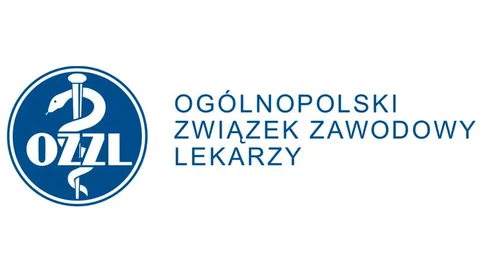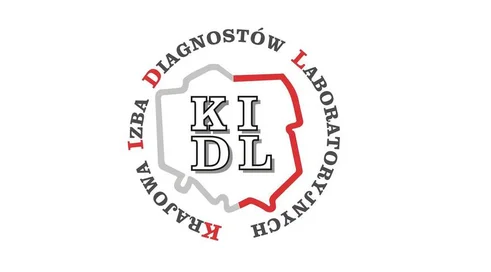Early 2024 - where are we in terms of implementing the Rare Disease Plan?

Published Feb. 2, 2024 12:42

Instead, in January 2024, we asked the Ministry of Health about the progress of the Plan relative to the beginning of last year (we wrote about how the implementation of the Plan looked at the beginning of 2023 here: link). We received a response from the Ministry of Health in mid-January, and it shows that:
- The Council for Rare Diseases and the Scientific Council of the Rare Disease Information Platform and the Scientific Council for Rare Disease Registries were established.
- The Centers of Expertise for Rare Diseases (OECR) was established in March 2023, and the Minister of Health is working to identify more OECRs and plans to introduce new billing products billed in OECRs in the near future.
- The Plan provides for the provision of modern methods of laboratory analysis (both large-scale genetic and non-genetic highly specialized) in the diagnosis of rare diseases. As we were informed in the answer given, to this end, the Minister of Health is working closely with experts to create a list of necessary diagnostic tests, and then their implementation in the health care system, this work, depending on the field of rare diseases, is at the stage of development of the Health Care Delivery Charter by experts, to the stage of conducting the legislative process.
- In addition, as reported to us by the Ministry of Health, the following tasks have been carried out in the area of access to drugs and special dietary measures for rare diseases:
(a) Supporting the development and use of advanced risk-sharing instruments - by introducing a provision in the DNUR[5] that if an administrative decision on reimbursement coverage includes a risk-sharing instrument, it may be billed in the manner specified in the instrument, even if the decision has either expired or been revoked. As explained by the Ministry of Health, this creates the possibility of concluding sharing instruments with staggered payments and making their repayments dependent on the duration of therapy, real and sustained effectiveness, or other factors.
b) Simplified procedure for applying for reimbursement of drugs with low impact on the payer 's budget - DNUR introduced a provision according to which the Minister of Health may cover with reimbursement a drug, including a drug with the OTC availability category, which requires use for more than 30 days in a specific clinical condition and is recommended in clinical management guidelines, in case the applicant has not yet submitted a reimbursement application for the drug in a given indication and the market exclusivity for the drug has expired. According to the Minister of Health, the above is intended to allow interested entities to submit reimbursement applications for drugs with well-established efficacy but little impact on the payer's budget, which were developed and marketed many years ago and a large number of responsible entities are interested in covering reimbursement drugs, but have not so far submitted reimbursement applications due to the inability to prepare a verification analysis, as well as collect the evidence required for this analysis. By way of comment - it seems that such a change will not significantly increase the availability of orphan drugs, as firstly - it will still be the applicant who will decide whether to submit a reimbursement application, and secondly - drugs used in rare diseases are often drugs that still have market exclusivity, so to many of them the regulation under discussion will simply not apply.
c) On the other hand, as for "other tasks requiring amendments to the Reimbursement Act" - The Ministry of Health draws attention to changes in demonstrating proof of availability of a drug on the market at the time of application for reimbursement (i.e., relaxation of requirements for advanced therapy medicinal products - a commitment to ensure technological readiness to manufacture such a product as of the date of application is sufficient). In this context, the Ministry of Health points out that this Simplifies the administrative procedure for an advanced therapy medicinal product. We fully share this position of the Ministry of Health and evaluate this change positively, although further measures liberalizing the obligation to provide proof of availability on the market remain to be considered, especially with regard to innovative drugs registered under the so-called central procedure.
- Regarding the "digitization of rare diseases" (Registry, Patient Passport and Information Platform), the Ministry of Health informed us that in 2023, the Information Platform was created and made available for public use[6]. At the same time, we were told that the creation of the Polish Rare Disease Registry and the Rare Disease Patient Passport are scheduled for implementation in 2024.
Finally, it is important to mention that we have entered 2024 with the so-called Major Amendment to the Reimbursement Act (DNUR), a piece of legislation that may permanently (regardless of the Plan itself and its possible amendments) affect access to publicly funded therapy for patients with rare diseases, and it may not necessarily be a positive impact. Indeed, the DNUR has introduced a number of provisions that may discourage companies from submitting reimbursement applications in Poland (or at least postpone them in time). This is how, for example, the amendment equipped the Minister of Health with the ability to influence (in some scopes completely freely) the content of drug programs, i.e. this mode of reimbursement, which in practice is often crucial for patients struggling with rare diseases (under drug programs usually the most expensive drugs are financed, which is often precisely orphan drugs). In practice, this can result in high instability of reimbursement decisions, which in turn directly contradicts the so-called Transparency Directive[7], and thus greatly worsens the conditions for introducing drug innovations in Poland. Moreover, after the changes introduced by DNUR, some drugs - including rare ones - may fail to pass the evaluation stage of the Agency for Health Technology and Tarification (AOTMiT), which, after the changes introduced by the Major Amendment to the Reimbursement Act, may turn out to be the last stage of the whole procedure (new prerequisites for obligatory discontinuation of reimbursement proceedings at the AOTMiT stage, i.e. even before the start of negotiations). In addition, a general analysis of the new regulations shows that they leave the Minister of Health quite a large discretionary leeway (e.g., in terms of the extent to which he will interfere with reimbursement decisions already issued), and at times even room for quite free interpretation (for example, the regulations on supplies, which, as far as their "clarity" and "lucidity" are concerned, leave much to be desired). As an aside, leaving the assessment of whether this is a desirable phenomenon in a state of law, it can be said with certainty that for the assessment of the real impact of DNUR on the situation of patients with rare diseases, the practice of application of this amendment and the interpretation of the new law presented by the authorities will be crucial[8]. On the other hand, it is not insignificant for the formation of this practice and interpretation that the new regulations have been in force for only a few months[9] and that there have been post-election (albeit partial) personnel changes in the Ministry of Health. So it remains to be hoped that reimbursement practice will move in a pro-patient direction in the coming months and years.
Zuzanna Rosłonowska, Lawyer
Gabriela Andziak, Attorney Trainee
[1] Plan for Rare Diseases available at: https://dziennikustaw.gov.pl/M2021000088301.pdf
[2] Resolution No. 110 of the Council of Ministers of August 24, 2021 on the adoption of the document Plan for Rare Diseases: https://dziennikustaw.gov.pl/MP/rok/2021/pozycja/883
[3] Draft resolution of the Council of Ministers amending the resolution on adoption of the document Plan for Rare Diseases: https://www.gov.pl/web/premier/projekt-uchwaly-rady-ministrow-zmieniajacej-uchwale-w-sprawie-przyjecia-dokumentu-plan-dla-chorob-rzadkich
[4] The Law of May 12, 2011 on Reimbursement of Medicines, Foodstuffs for Special Dietary Purposes and Medical Devices (i.e., Journal of Laws 2023, item 826, as amended, hereinafter: the "Reimbursement Law").
[5] The Law of August 17, 2023, on Amendments to the Law on Reimbursement of Medicines, Foodstuffs for Special Dietary Purposes and Medical Devices and Certain Other Laws (Journal of Laws, item 1938, as amended, hereinafter: "DNUR" or "Major Amendment to the Reimbursement Law").
[6] https://chorobyrzadkie.gov.pl/
[7] Council Directive of December 21, 1988 concerning the transparency of measures regulating the pricing of medicinal products for human use and their inclusion in the scope of the national health insurance system (OJ EU. L. 1989, No. 40, p. 8).
[8] In fact, the first announcements from the MZ regarding the use of DNUR are already appearing - such as: https://www.gov.pl/web/zdrowie/komunikat-ministra-zdrowia-w-sprawie-dotychczas-wydanych-decyzji-o-objeciu-refundacja-zawierajacych-zalacznik-w-postaci-opisu-programu-lekowego-w-zwiazku-ze-zmianami-prawa-jakie-zajda-z-dniem-1-listopada-2023-r
[9] Most of DNUR's regulations did not take effect until November 1, 2023, and some regulations will not take effect until 2024.
















